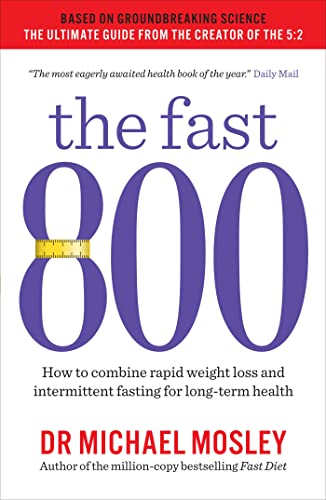Unlocking the Potential: How Intermittent Fasting Transforms Health and Well-Being in 30 Days
Intermittent fasting (IF) has become one of the most popular health and fitness trends worldwide, praised for its simplicity and effectiveness in improving overall health and well-being. Rooted in the natural cycles of eating and fasting from ancient times, this dietary approach is not merely about restricting calories but rather focusing on when you eat. In just 30 days, intermittent fasting can potentially unlock numerous health benefits, from enhanced metabolic function to improved mental clarity and longevity—provided it is done correctly and with consideration to one’s individual needs.
Understanding Intermittent Fasting
At its core, intermittent fasting involves cycling between periods of eating and fasting. There are several methods of IF, but the most common ones include the 16/8 method (fasting for 16 hours and eating within an 8-hour window), the 5:2 approach (eating normally for five days while consuming around 500-600 calories on two non-consecutive days), and Eat-Stop-Eat (fasting for a full 24 hours once or twice a week). The simplicity of letting your body switch between these two states helps set the stage for numerous physiological benefits.
Benefits in Just 30 Days
-
-
Enhanced Weight Loss and Metabolic Health:
Within 30 days, one of the most noticeable changes through IF is weight loss. This occurs as the body increases its reliance on stored fat for energy during fasting periods. By stabilizing insulin levels and improving insulin sensitivity, IF supports fat loss while maintaining muscle mass. Studies suggest that with controlled calorie intake during eating windows and regular fasting, individuals can see impactful changes on the scale and discover a leaner physique.
-
-
-
Improved Brain Function and Mental Clarity:
Fasting stimulates the production of brain-derived neurotrophic factor (BDNF), a protein that promotes the health of neurons and improves cognitive function. In 30 days, many reports decreased brain fog and enhanced focus. Fasting also encourages the process of autophagy, where cellular waste is cleaned up, potentially reducing the risk of neurodegenerative diseases.
-
-
-
Regulation of Hormones:
Intermittent fasting plays a role in balancing a variety of hormones that govern different bodily functions. For instance, IF helps improve growth hormone levels, which are essential for muscle gain, fat loss, and metabolic health. Moreover, by managing insulin levels, it aids in hormone regulation, contributing to sustained energy levels and reduced hunger.
-
-
-
Enhanced Energy Levels:
With stabilized blood sugar levels and increased production of norepinephrine, a hormone that boosts alertness, fasting can lead to a significant boost in energy levels. Over a 30-day period, the body adapts to using fat as a more steady energy source rather than carbohydrates, reducing energy crashes throughout the day.
-
-
-
Reduced Inflammation:
Chronic inflammation is a precursor for many diseases, including heart disease, cancer, and arthritis. Intermittent fasting can effectively reduce inflammation markers and oxidative stress in the body, paving the way for a healthier system. Within a month, many might note the reduction of minor inflammatory symptoms like occasional joint pain or digestive bloating.
-
-
-
Simplified Lifestyle:
One underappreciated benefit of IF is its ability to simplify life with less emphasis on meal planning, cooking, and eating. This can lead to reduced stress around food choices and more time to focus on other health and wellness activities, such as exercise and mental health practices.
-
How to Start a Successful 30-Day Intermittent Fasting Journey
Embarking on a 30-day IF journey requires preparation and mindfulness. Here are some tips to set you up for success:
-
-
Choose the Right Method:
Start by selecting a method that aligns with your lifestyle. Beginners might find the 16/8 method the easiest to adopt.
-
-
-
Focus on Nutrition:
While fasting is essential, the window during which you eat should be filled with nutritious foods. Emphasize whole foods such as vegetables, lean proteins, healthy fats, and whole grains to ensure you get all necessary nutrients.
-
-
-
Stay Hydrated:
During fasting periods, hydration is crucial. Water, herbal teas, and black coffee (without added sugars or cream) are excellent choices to keep you hydrated and curb hunger pangs.
-
-
-
Listen to Your Body:
Intermittent fasting is not one-size-fits-all. Pay attention to how your body responds to the fasting regimen and adjust accordingly. Do not hesitate to consult with a healthcare provider if you have underlying health conditions.
-
-
-
Incorporate Rest and Recovery:
Especially during the initial days, your body may take time to adjust to the new eating pattern. Adequate sleep and stress reduction techniques, such as meditation or yoga, can support this transition.
-
-
-
Consistency is Key:
Like any lifestyle change, consistency is vital to see results. Stick with your program for the full 30 days to allow your body to adapt and experience the full range of benefits.
-
Conclusion
In 30 days, intermittent fasting can transform aspects of your health and well-being. Through improved metabolic processes, enhanced cognitive function, better hormone regulation, and more, IF offers a promising approach to achieving holistic health. As with any dietary change, it’s vital to listen to your body and make adjustments as necessary. While the benefits of intermittent fasting are impressive, it is merely a tool to complement a balanced diet and lifestyle aimed at achieving long-term health goals.







Leave a Reply